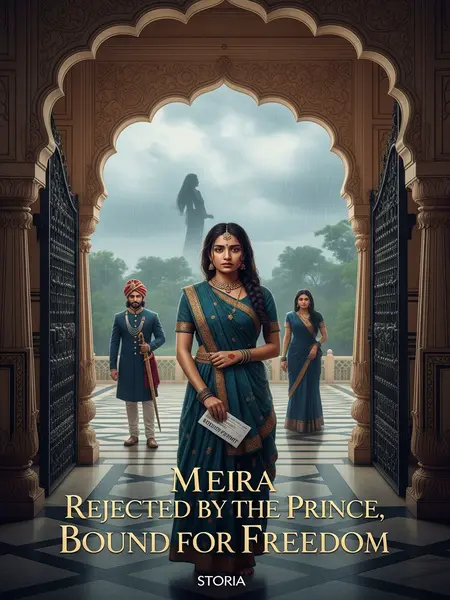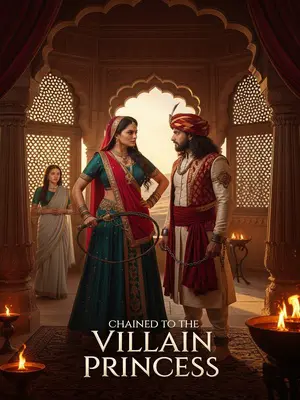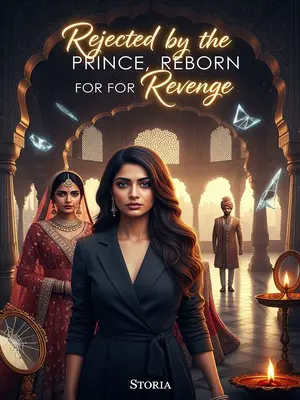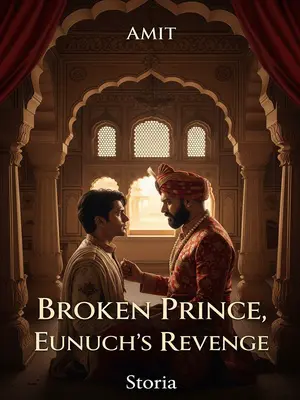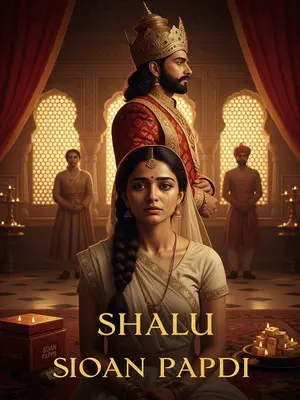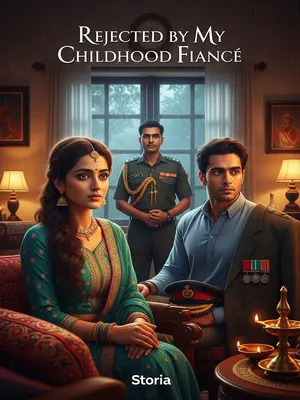Chapter 1: The Unveiling
I have just learned that my husband is the fifth son of the current royal family. His name has been cleared, and he will soon return to Delhi.
As the truth struck, my heart clenched as if caught in a vice. For all these years, I’d lived with Arjun in this crowded by-lane of Pune, never once suspecting that royal blood ran beneath the skin I’d nursed through fever. Out on the street, an auto’s horn blared, mixing with the distant clang of temple bells and the sharp scent of frying onions from the neighbour’s kitchen, but my mind drifted far from these daily sounds. The weight of this revelation pressed down heavier than the thick monsoon clouds waiting to burst above.
The one who had come to fetch him was his fiancée—the Raja’s own daughter, legitimate in every way.
I remembered her from last evening: tall, regal, wrapped in a pastel saree, forehead adorned with a delicate bindi and a gold maang-tikka that glinted even in the faded light. The entire mohalla had fallen into a hush as her car, flying the family crest, glided down our lane. The local boys gawked, the aunties whispered behind their dupattas, and even the halwai paused his ladle in the kadhai.
In Kaveripur, only a woman wearing the royal family’s gold anklet could become a prince’s wife. Our marriage—my mangalsutra, the rituals, the nights spent together—meant nothing here.
My gaze dropped to my own feet, flour still clinging to my toes from the morning’s dough. No sign of gold, only the thin silver payal Ma had tied on me at my gauna. Their rules were as rigid as the steel trunks the Raja’s men had unloaded, lined with silk and old pride.
Priya has waited for me for two years. She is willing to grant you the status of an honoured second wife—already a great concession for her.
There was a strange pride in Arjun’s voice, as though this magnanimity could erase the sting of being replaced. In our world, a woman’s willingness to share her husband is both sacrifice and status—something whispered about in courtyards, never spoken of in drawing rooms.
He told me to pack up and follow him to Delhi in a few days.
He spoke as if life was as simple as folding a dupatta and tucking it away. The city that had been my whole world for two years now felt like a waiting room, my presence an expired ticket.
But I do not wish to go to Delhi.
The thought of a sprawling palace, echoing corridors and cold marble floors, left me short of breath. I was a Pune girl—my world was the warmth of a crowded kitchen, the smell of tadka, neighbours calling for sugar through open windows. Delhi was another universe, where my laughter would echo alone.
He grew impatient: “Meera, jaldi tayyar ho jao. Teen din mein Dilli nikalna hai—sab kuch sambhal lena.”
His words hung in the small room, bouncing off peeling walls and the whirring fan. As if a woman should be grateful for any corner she’s given—even a gilded cage. The old fan creaked overhead, keeping a hollow rhythm with my silence.
He does not know.
He never asked. Never wondered if my dreams stretched beyond the four walls of his world. Men, sometimes, are blind to anything outside their own ambition.
Aside from Delhi, I have other places to go.
The words settled inside me with quiet certainty, like the first drops of rain that promise a downpour. There were possibilities beyond this, even if no one else saw them.
Papa sent me a permit for the border. I can travel beyond the frontier to trade. From then on, the sky will be vast and the world wide. We will part ways and each seek our own happiness.
I touched the letter Papa had sent, its thin paper still smelling faintly of sandalwood and paan. The world outside Pune waited—dusty, alive, roads stretching farther than I could see. Freedom, I thought, is sometimes found under the open sky, not in palaces of marble.
